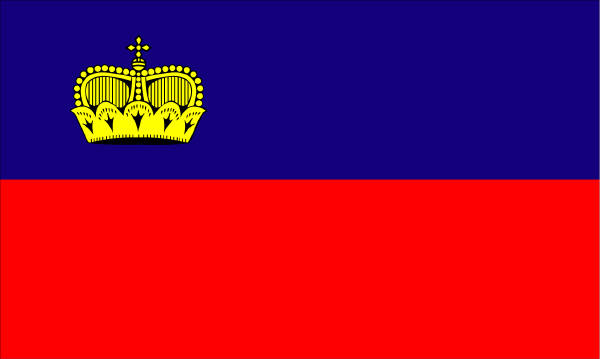Login form
Customs of Liechtenstein
 Marriage and Family
Marriage and Family
People usually marry in their late 20s; it is considered important to first complete one’s education and enjoy some financial security and independence. Some couples live together before or instead of marriage. Legal marriages are performed at the national Registry Office. To have a church wedding is optional, but common, and usually takes place the day after the civil ceremony. Some old wedding customs include decorating the door frames of the couple’s home with garlands or organizing a mock kidnapping of the bride.
The nuclear family is the most important social unit in
Eating
Zmorga (breakfast) usually consists of one of many varieties of bread with jam and coffee. Zmittag (the main meal) is served at midday and includes a soup or salad, a main dish, and dessert. Znacht (dinner), usually served around 6 or 7 pm, is typically light and often consists of open-faced sandwiches with cheese and meat. When going out for dinner, people meet around 8 pm. The national dish, Rebel, is made of ground maize stirred in a frying pan with milk, water, and salt. It is often eaten with elderberry purée. Other traditional dishes are Käsknöpfle, a type of pasta with sharp cheese, and Rôschti, grated and fried potatoes.
The continental style of eating is used, with the fork in the left hand and the knife remaining in the right. It is considered polite to not leave any food on the plate, and accepting second helpings is interpreted as a compliment to the cook. When a person has finished eating, the cutlery is placed side by side on the plate. In restaurants, leftovers are not taken home. Most people drink bottled mineral water, wine, or beer with meals.
Toasting with alcoholic beverages is common. Whether in the home or at a restaurant, it is impolite to begin drinking before the host proposes the first toast. The host will not do this until everyone has a full glass. Once the first toast is made, all guests are free to take a drink and propose additional toasts. In a group, the glasses are lightly tapped simultaneously in pairs.
Socializing
A handshake is usually the appropriate form of greeting. It is common to greet people verbally on the street or when entering a store. The traditional terms used to address strangers are either the Swiss-German Grüezi! or the Grüß Gott! used in
Young people socialize on a casual basis in school and in numerous recreational clubs. There are close to 300 clubs and Verein (associations) in
Dinner guests are expected to arrive no more than a quarter of an hour late. They often bring a small gift for their hosts. In formal situations, guests do not sit down until they are invited to do so. It is appropriate to give notice of a visit in advance; dropping by is only common between neighbors or close friends and relatives. While dinner may last well into the night, daytime visits are usually short.
Recreation
People in
Holidays and Celebrations
The long procession of Roman Catholic holidays parading through the calendars of
The Feast of Saint Joseph is observed on 19 March, and Easter is celebrated Good Friday (Friday preceding Easter) through Easter Monday (Monday following Easter). The Ascension, 40 days after Easter, is the day Jesus Christ is said to have ascended to Heaven. The Pentecost, or Whitsunday, 50 days after Easter, celebrates the birth of the Christian church; Whitmonday, the day after, is a public holiday.
Labor Day is observed on 1 May. Mother’s Day is celebrated the second Sunday in May.
The Feast of the Immaculate Conception on 8 December celebrates God’s choice of Mary to give birth to his only son. Christmas (25 December) is the most important holiday of the year. Gifts are exchanged on Christmas Eve, when the family gathers around the Christmas tree. Christmas Day is for relaxing, and 26 December is a day for visiting friends and family.
In addition to this roster of Catholic and public holidays, many old customs, partly pagan in origin, are still continued as folklore, such as Funkasunntig (Bonfire Sunday) and Fasnacht (Carnival).
Source: Encarta Interactive World Atlas

